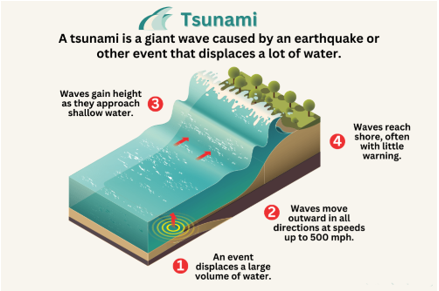You're all caught up—no notifications available.
Explore All Exams at KGS

All Exams
Explore All Exams at KGS
Khan Sir Courses
Geography I Polity I History | World Map I Indian Map I Economics I Biology
UPSC & State PSC
UPSC I BPSC I UP-PSC I MP-PSC
State Exams
UP I Bihar I MP | Rajasthan
NEET | JEE | CUET | Boards
NEET | JEE | CUET | Boards
Defence Exams
NDA I CDS I CAPF I AFCAT I SSB I Agniveer
Police Exams
UP SI | Bihar SI | Delhi Police | UP Constable
SSC Exams
CGL I CPO I CHSL I MTS I SSC GD I Delhi Police
Foundation Courses
Physics I Chemistry I Biology I History I Geography I Polity I NCERT I Math I English | Map I Reasoning
Railway Exams
RRB | RPF
Teaching Exams
TET | Teaching | UGC
Banking Exams
SBI | RBI | IBPS
Engineering Exams
Civil | Electrical | Mechanical
UGC NET
UGC NET/JRF
Current Affairs provides you with the best compilation of the Daily Current Affairs taking place across the globe: National, International, Sports, Science and Technology, Banking, Economy, Agreement, Appointments, Ranks, and Report and General Studies

Syllabus
GS-1: Important Geophysical phenomena such as earthquakes, Tsunami, Volcanic activity, cyclone etc.
Context:
The Indian National Centre for Ocean Information Services (INCOIS) confirmed that there is no tsunami threat to India following the powerful earthquake off the coast of Russia.
More on the News
About Tsunami
• A tsunami is a series of waves generated by a large and sudden displacement of the ocean.
• Large earthquakes below or near the ocean floor are the most common cause, but landslides, volcanic activity, certain types of weather and meteorites can also cause tsunamis.
Key Cause of Tsunami
• Undersea Earthquakes (~80% cases): Most tsunamis are caused by strong earthquakes beneath the ocean floor that result in vertical displacement of the seabed.
• This sudden uplift or subsidence pushes water upward or downward, creating waves that radiate outward rapidly across the ocean.
• Conditions for a Tsunami-Causing Earthquake:

• Underwater Landslides: Earthquakes can trigger submarine landslides that also displace water.
• Volcanic Eruptions: Volcanic eruptions and collapsing slopes near or under water can abruptly displace water, triggering tsunamis
• Meteorite impacts into oceans or seas.
• Glacier calving (sudden large ice chunks falling into the sea) in polar regions.
Indian National Centre for Ocean Information Services (INCOIS)
• It was established as an autonomous body in 1999 (Hyderabad, Telangana) under the Ministry of Earth Sciences to specialise in early alerts for ocean-related hazards.
• It provides round-the-clock monitoring and warning services for the coastal population on tsunamis, storm surges, high waves, etc. through the in-house Indian Tsunami Early Warning Centre (ITEWC).
• INCOIS has been designated as the 'National Oceanographic Data Centre' by IOC/IODE of UNESCO and is also identified as the 'Regional Argo Data Centre for the Indian Ocean'.
• INCOIS is a permanent member of the Indian delegation to the IOC of UNESCO and a founding member of the Indian Ocean Global Ocean Observing System (IOGOOS) and the Partnership for Observing the Oceans (POGO).
Source
PYQ Linkage
Q: Comment on the resource potentials of the long coastline of India and highlight the status of natural hazard preparedness in these areas. (GS-1/2023)
UPSC Mains Practice Question:UPSC Mains Practice Question:
Q. Discuss the key causes of tsunamis and the steps taken by India for early warning and mitigation. Highlight the role of the Indian National Centre for Ocean Information Services (INCOIS) in managing ocean-related disasters.

NCERT Books
Resources
We love learning. Through our innovative solutions, we encourage ourselves, our teams, and our Students to grow. We welcome and look for diverse perspectives and opinions because they enhance our decisions. We strive to understand the big picture and how we contribute to the company’s objectives. We approach challenges with optimism and harness the power of teamwork to accomplish our goals. These aren’t just pretty words to post on the office wall. This is who we are. It’s how we work. And it’s how we approach every interaction with each other and our Students.
Come with an open mind, hungry to learn, and you’ll experience unmatched personal and professional growth, a world of different backgrounds and perspectives, and the freedom to be you—every day. We strive to build and sustain diverse teams and foster a culture of belonging. Creating an inclusive environment where every students feels welcome, appreciated, and heard gives us something to feel (really) good about.
Get Free academic Counseling & Course Details
